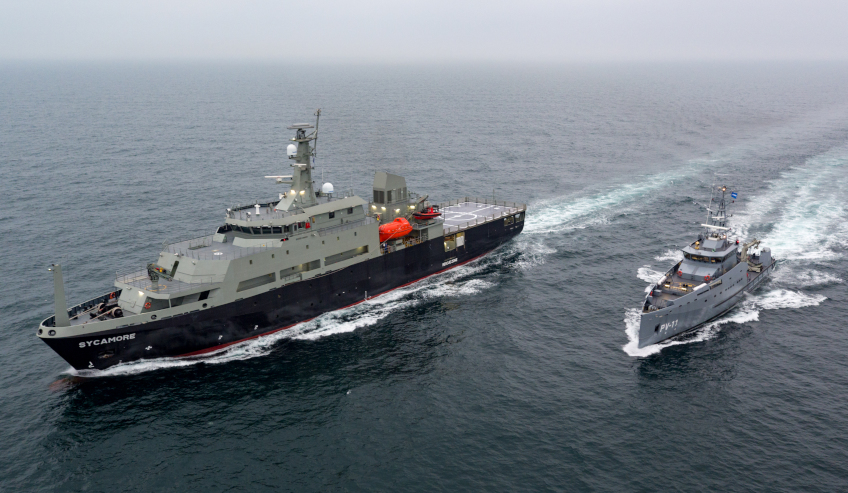As selection of the tenderer for the $3 billion Offshore Patrol Vessels draws closer, Defence Connect spoke with the Dutch company backing its bid for the 12 vessel contract.
With the Damen-built Multi-Role Aviation Training Vessel (MATV) MV Sycamore, which has been dubbed Australia's first OPV, due to arrive in Sydney on Monday, Damen Shipyards representative Mark Todd told Defence Connect the Dutch bidder is confident in the bid it has put forward to the Commonwealth.
"We're very confident that what we say we're going to do, we'll be able to deliver," Todd said.
Todd said the company's process of standardisation is one of the things that the Dutch firm believes sets it apart from the other tenderers.
"Why we think we're better than the others is because of standardisation as a core product from Damen," he said.
Todd said this standardisation is almost a trademark of the company, one that, anecdotally, can be traced back to 1969.
"To go back to the history, Mr Damen in 1969 turned to his father – that's Kommer Damen is his name, Mr Damen – he turned to his father in 1969. He was a little fishing boat builder on a river in central Netherlands, coming through the Second World War. The Dutch went through a horrific time in the Second World War, obviously, because of their proximity and, you know, the Nazis. And they were overtaken through those four or five years," he said.
"So Kommer Damen said to his dad, 'I reckon, dad, we can use that fishing boat hold for a push-pull tug'. And his father said, 'No, we can't do that. Stick to your bidding, son'. You know, that sort of piece because he'd come through the war. And so Kommer set off on his own. Took out a loan from the bank and used the same hull form but built push-pull tugs with it. So right from the start, it's that standardisation principle.
"If you look at some of our crew supply vessels, which supply all the gas markets all over the world to take crews out to their oil and gas rigs, if you look at those hull forms and you look at the hull forms in patrol vessels around the world, it's the same engineering, the same hull. You know, the same sort of naval architecture principles apply. It's just used for a different format. It breeds reliability and it breeds cost reduction because obviously the economies of scale associated with it."
Although the 12 OPVs will be tailored to Australia's requirements, Damen says the fundamentals of OPVs and the company's history in manufacturing these vessels is all part of the company's reliable, cost-efficient standardisation process.
"So if we build an OPV with a certain hull form, we also might be building 40 other ships of the same hull form suiting other markets around the world. So it means no ship's an orphan ... Although they're tailored to meet customer requirements, the core of the ship, the engineering and the hull forms, is the same basic approach. Which means they're easy to maintain, easy to service, they're reliable and so they meet customer requirement," Todd said.
"So that standardisation's quite key, I think, from a Damen perspective. And it's sort of a hallmark of how we do business."
In April this year, Damen submitted its tender for the OPV project early. The company has teamed with ASC and Forgacs for its bid.
German companies Lürssen and Fassmer are also tendering for the project.








